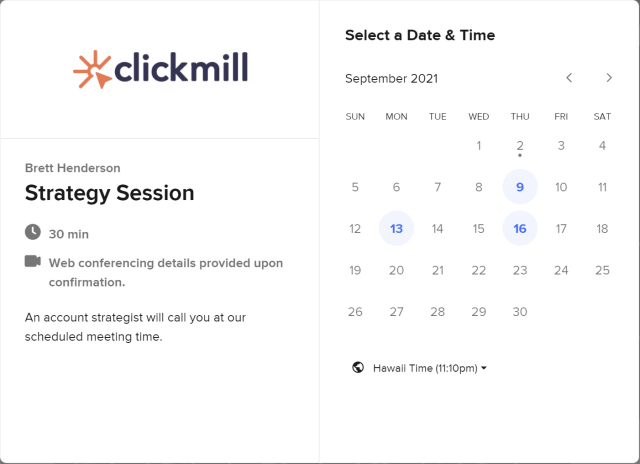A church plan helps guide growth, meet the needs of members, and ensure the church thrives. It lays out goals, roles, and strategies to tackle challenges, make the most of resources, and keep everyone focused on the same mission.
How do you know if you need a church strategic plan, or if you need to update the one you have?
As a pastor, you’re tasked with leading your congregation, building a strong church community, and growing your membership. But how can you achieve these goals while managing your time and finances effectively?
The answer lies in creating a comprehensive church strategic plan. This article will guide you through the process, providing valuable insights, resources, and tips to help you develop a plan that aligns with your vision, mission, and values.
A church strategic plan is a vital tool that provides direction and structure for your ministry. It helps you set priorities, allocate resources, and evaluate your progress.
By incorporating the elements of a strategic plan, you’ll be better equipped to grow your congregation, engage the youth, and overcome challenges such as limited budgets and lack of marketing knowledge.
What is Church Strategic Planning?
Church strategic planning is a systematic process that involves setting long-term goals, determining the necessary steps to achieve those goals, and implementing a plan to guide your church’s growth and development.

It’s a proactive approach to church management that empowers you to make informed decisions and effectively respond to changes in your congregation and community.

Get A Proven Marketing Plan That Increases Enrollments When You Book A Call Today!
Receive customized advice to help your school attract more families!
Importance of Strategic Planning for Churches
A well-defined strategic plan is essential for churches because it helps:
- Clarify your church’s purpose and direction
- Set achievable goals and objectives
- Make informed decisions and allocate resources effectively
- Foster unity and commitment among church leaders and members
- Measure progress and evaluate the effectiveness of your programs and initiatives
Elements of a Strategic Plan
The elements below work together to create a ministry that is primed for growth.
When your ministry is unclear about the elements of your church’s strategic plan, your church will not be able to sustainably move into the future and accomplish all that God has called it to.
Church Vision Statement
A church vision statement is a clear and inspiring declaration of the promised land God has called you and your congregation to reach.
It should answer the question, “What will the world, or your community look like when your church has reached the its promised land?” and provide a vivid picture of what success looks like.
Your vision statement should be concise, memorable, and aligned with biblical principles. It’s the vision of the future God has called you to create.
Church Values
Your church values define the core beliefs and principles that guide your church’s behavior and decision-making.
They serve as a foundation for your strategic plan, helping to ensure that your actions align with your faith and purpose. Your values should be clear, consistent, and rooted in biblical teachings.
Church Mission Statement
A church mission statement outlines your church’s purpose and primary objectives. It answers the question, “Why do we exist?” and serves as a guide for decision-making and resource allocation.
Your mission statement should be specific, actionable, and grounded in Scripture.
Key Performance Indicators (KPI’s)
Key performance indicators (KPIs) are measurable goals that help you track your progress and evaluate the effectiveness of your strategic plan.

By establishing KPIs, you can monitor your church’s growth, engagement, and financial health, making data-driven decisions to improve your ministry.
KPIs may include metrics like attendance, baptisms, financial contributions, and community outreach initiatives. You can also read our full post on choosing and tracking church metrics.
How do these Elements Fit Together?
Each element of your strategic plan plays a crucial role in driving your church’s success. Your vision statement sets the direction, while your mission statement defines your purpose. Your values serve as a moral compass, and your KPIs help you measure progress and make informed decisions. By aligning these elements, you create a cohesive and actionable plan that propels your church toward its goals.
Steps to Create a Church Strategic Plan
- Gather input from your congregation and leadership team
- Develop your vision, mission, and values
- Set long-term goals and objectives
- Create a detailed action plan, including tasks, timelines, and resources
- Establish KPIs to measure progress and success
- Communicate your strategic plan to your congregation and stakeholders
- Review and adjust your plan regularly, incorporating feedback and adapting to changing circumstances

Get A Proven Marketing Plan That Increases Enrollments When You Book A Call Today!
Receive customized advice to help your school attract more families!
Benefits of a Church Strategic Plan
Developing a strategic plan for your church offers several benefits, including:
- Clear direction and focus
- Improved decision-making and resource allocation
- Enhanced communication and collaboration
- Increased engagement and commitment from your congregation
- Greater impact in your community and beyond
Challenges and How to Overcome Them
Implementing a strategic plan can present challenges, such as resistance to change, limited resources, and competing priorities. To overcome these obstacles:

- Involve your congregation and leadership team in the planning process
- Provide regular updates and celebrate milestones
- Seek guidance from Scripture and trusted church leaders
- Be flexible and adapt your plan as needed
If you feel you may need some outside help, our Church Consulting Blog has tons of information on how t choose the best church consultant to help with your church strategic plan.
Growth Cards for Church Staff Roles
To effectively track progress and align individual efforts with your church’s strategic plan, it’s essential to assess each job role within your church and assign them a “growth card.”
A growth card serves as a personalized performance management tool that outlines specific key performance indicators (KPIs) for each staff member, helping them contribute to the overall goals of the ministry.
Here’s how to create and implement growth cards for various roles in your church:
- Identify key job roles: Begin by identifying the various roles within your church, such as pastors, worship leaders, youth ministers, administrative staff, and volunteers.
- Define relevant KPIs for each role: For each job role, determine the most relevant KPIs that align with your church’s strategic plan and contribute to its growth. These KPIs should be specific, measurable, achievable, relevant, and time-bound (SMART).
Examples of KPIs for different roles may include:- Pastors: Number of new members, sermon engagement, discipleship program participation
- Worship leaders: Attendance at worship events, volunteer involvement, feedback from the congregation
- Youth ministers: Youth group attendance, community outreach initiatives, spiritual growth of youth members
- Administrative staff: Efficiency of church operations, budget management, communication effectiveness
- Volunteers: Hours of service, event participation, impact on church initiatives
- Create individual growth cards: For each staff member, develop a growth card that outlines their role-specific KPIs, along with targets and deadlines for achieving these KPIs. Ensure that the growth card is clear, concise, and easy to understand.
- Communicate expectations and provide support: Meet with each staff member to review their growth card, discuss expectations, and ensure they understand their responsibilities. Offer resources, training, and support to help them succeed in their role and meet their KPI targets.
- Monitor progress and provide feedback: Regularly review each staff member’s progress towards their KPIs and provide constructive feedback. Schedule periodic check-ins to discuss successes, challenges, and areas for improvement.
- Adjust growth cards as needed: As your church’s strategic plan evolves or individual roles change, update growth cards to reflect new goals and KPIs. This ensures that staff members remain focused on the most relevant and impactful objectives.
- Celebrate successes and reward achievements: Recognize and celebrate staff members who successfully achieve or exceed their KPI targets. This can help motivate your team and foster a culture of growth and continuous improvement.
By implementing growth cards for each role within your church, you can create a performance-driven environment where staff members are accountable for contributing to the overall success and growth of your ministry.
With clear expectations, ongoing support, and regular feedback, your team will be empowered to work towards achieving your church’s strategic plan.
As we continue, we will look at some subcategories you should consider in your overall strategic planning.

Get A Proven Marketing Plan That Increases Enrollments When You Book A Call Today!
Receive customized advice to help your school attract more families!
Churchgoer Needs & Church Strategy
A crucial aspect of any church growth plan is identifying and addressing the deeply felt needs of the congregation.

As church leaders, we must recognize that people are drawn to places where their needs are met and remain committed when these needs are consistently satisfied.
Jesus himself demonstrated this approach by addressing the non-spiritual needs of the people first, providing fish to fishermen and healing the sick, before shifting the conversation to spiritual matters.
To ensure the success of a church’s growth plan, it is strategically essential to identify the most deeply felt needs of the church audience that align with the mission, vision, and values.
This can be accomplished through various market research tools, such as surveys and interviews, to gather valuable insights about the congregation’s needs and preferences.
Once these needs are identified, church leaders can create ministry programs specifically tailored to address these concerns, fostering a deeper connection with the congregation and promoting sustained growth.
Here are some steps to help you develop a strategy for meeting your audience’s deeply felt needs:
- Conduct thorough market research: Utilize surveys, focus groups, and one-on-one interviews to collect data on the needs and desires of your congregation. This information will provide valuable insights into what your church members are looking for in a spiritual community.
- Analyze the data: After gathering this information, analyze the results to identify patterns and trends in the needs and preferences of your congregation. Look for areas of alignment with your church’s mission, vision, and values.
- Develop targeted ministry programs: Based on your research findings, create ministry programs specifically designed to address the identified needs of your congregation. This could include support groups, community outreach initiatives, or educational workshops.
- Communicate and promote your programs: Ensure that your congregation is aware of these new initiatives by promoting them through various channels, such as social media, newsletters, and announcements during services. This will help to generate interest and encourage participation.
- Evaluate and refine your strategy: Continually assess the effectiveness of your ministry programs and make adjustments as needed. This may involve revisiting your market research, implementing feedback from participants, or exploring new ways to meet the needs of your congregation.
Many churches are great at marketing but fail to follow through on the promises of their marketing to meet the actual needs of their audiences.
This is one of the core reasons many ministries see attendance bumps after major events but don’t see long-term increases in attendance.
Now that you have identified how you will consistently meet the needs of your church’s target audience, it’s time to implement your marketing strategy.
Developing an Effective Church Marketing Strategy
In today’s increasingly connected world, a well-planned church marketing strategy is essential for reaching new members, engaging your congregation, and making a positive impact in your community.

A successful marketing plan will help you communicate your church’s vision, values, and unique offerings, as well as amplify your message and extend your reach.
Here are some steps to develop an effective church marketing strategy:
Define your target audience: Start by identifying your church’s target audience, considering factors such as age, location, interests, and needs. Tailor your marketing efforts to resonate with this audience and address their specific challenges and aspirations.
Establish your goals and objectives: Set clear, measurable goals for your marketing strategy, such as increasing attendance, growing your social media presence, or promoting a specific event or program. Ensure your objectives align with your church’s mission and values.
Develop your key messages: Craft compelling messages that reflect your church’s unique offerings, culture, and beliefs. Use stories, testimonials, and Scripture to illustrate the transformative impact of your ministry and inspire your audience to take action.
Choose the right marketing channels: Select the marketing channels that best suit your target audience and goals, such as social media, email marketing, direct mail, or local advertising.
Consider your budget, resources, and the preferences of your audience when selecting channels.
Create high-quality content: Produce engaging, shareable content that speaks to your target audience and showcases your church’s unique offerings.
This may include blog posts, videos, podcasts, social media updates, or email newsletters. Be sure to incorporate strong visuals, captivating headlines, and clear calls to action.
Optimize your website: Your church’s website is often the first point of contact for potential visitors. Ensure your site is user-friendly, mobile-responsive, and up-to-date with relevant information about your services, events, and programs. Include clear calls to action and make it easy for visitors to get in touch or plan a visit.
Leverage social media: Utilize social media platforms to connect with your audience, share updates, and promote your church’s events and initiatives. Encourage your congregation to engage with your content and share it with their networks.
Monitor and analyze your results: Track the performance of your marketing efforts using tools like Google Analytics, social media insights, and email marketing reports. Regularly review and analyze your data to identify trends, measure your progress, and make informed decisions about your marketing strategy.
Adjust your plan as needed: Based on your analysis, make adjustments to your marketing strategy to improve its effectiveness. Test new ideas, refine your messages, and explore different channels to reach and engage your target audience.

Get A Proven Marketing Plan That Increases Enrollments When You Book A Call Today!
Receive customized advice to help your school attract more families!
Create a Churchgoer Journey
A churchgoer journey, similar to a buyer journey, is the process an individual goes through from their initial awareness of your church to become an active, committed member of your congregation.

By understanding and mapping out this journey, you can create a marketing strategy that effectively guides individuals through each stage and supports their growth within your church community. Here are the strategic steps to consider when crafting a churchgoer journey:
Awareness Stage: In this stage, individuals first become aware of your church through marketing efforts, word-of-mouth, or personal invitations.
Focus on creating engaging content, utilizing targeted advertising, and leveraging social media to reach potential churchgoers and introduce them to your ministry.
Consideration Stage: As potential churchgoers begin considering your church, they will likely research and compare it to other local churches.
Provide comprehensive information about your services, beliefs, programs, and events on your website and social media platforms.
Encourage testimonials and reviews from current members to demonstrate the impact and benefits of your ministry.
Decision Stage: In this stage, individuals decide to attend a service or event at your church. Make it easy for them to plan a visit, get directions, and connect with staff or volunteers. Offer a welcoming environment, and ensure that first-time visitors feel comfortable and included.
Engagement Stage: Once an individual has visited your church, encourage deeper engagement through follow-up communications, invitations to join small groups or volunteer opportunities, and personal connections with church leaders and members.
Commitment Stage: As individuals become more engaged, they may choose to commit to your church by becoming members, participating in church activities, and contributing financially.
Offer membership classes, discipleship programs, and opportunities to serve within the church and the community to help deepen their commitment.
Advocacy Stage: Active, committed church members can become advocates for your ministry, inviting others to join and sharing their experiences.
Encourage and equip your congregation to spread the word and invite friends, family, and colleagues to your church.
When deciding on which specific churchgoer action aligns with each of these steps, consider your church’s unique context, culture, and goals.
Tailor your churchgoer journey to your target audience, and continually evaluate and refine your approach to ensure it effectively supports individuals at each stage of their journey.
By creating a well-defined churchgoer journey, you can provide a clear path for individuals to connect, engage, and grow within your church community.
By developing a comprehensive church marketing strategy, you can effectively communicate your church’s message, attract new members, and strengthen your community’s connection to your ministry.
Stay committed to your goals, be open to innovation, and embrace the power of marketing to amplify your impact.
Once you have identified these variables of your marketing plan, identify the KPI’s that each person on your team is responsible for and create a church growth card with the KPI’s and goals they will be responsible for accomplishing.

Get A Proven Marketing Plan That Increases Enrollments When You Book A Call Today!
Receive customized advice to help your school attract more families!
Strategic Planning for Recessions
Economic downturns and recessions can significantly impact church finances, making it challenging to meet the needs of your congregation and community.

Developing a strategic plan for church finances during a recession is essential to ensure your ministry remains sustainable and effective in challenging times.
Here are some steps to help you create a financial plan that is both resilient and adaptable.
- Assess your current financial situation: Review your church’s income, expenses, and financial commitments. Identify areas of vulnerability and potential risks, such as declining contributions, increased costs, or unanticipated expenses.
- Establish financial goals: Set realistic and achievable financial goals for your church that take into account the effects of the church recession. These goals might include maintaining a balanced budget, increasing financial reserves, or reducing debt.
- Prioritize your spending: Reevaluate your church’s spending priorities and allocate resources to areas that align with your mission, values, and goals. Consider cutting non-essential expenses, renegotiating contracts, or postponing large capital projects.
- Diversify your income sources: Relying solely on tithes and offerings can make your church more vulnerable during a recession. Explore alternative income sources, such as grants, fundraisers, facility rentals, or partnerships with local businesses and organizations.
- Develop a contingency plan: Create a plan that outlines the actions your church will take if its financial situation worsens. This plan might include cost-saving measures, such as staff reductions or program cuts, as well as strategies for generating additional income.
- Communicate with your congregation: Be transparent about your church’s financial challenges and the steps you’re taking to address them. Encourage your congregation to continue supporting the church through tithes, offerings, and volunteer work.
- Seek guidance from Scripture and church leaders: Consult the Bible and church leaders for wisdom and guidance in managing your church’s finances. Look for passages that offer insight into stewardship, generosity, and faith during difficult times.
- Monitor your progress and adjust your plan as needed: Regularly review your financial plan and make adjustments as needed to respond to changing circumstances. Be prepared to adapt your plan as the recession evolves and new opportunities or challenges emerge.
By developing a strategic plan for church finances during a recession, you can ensure your ministry remains strong, resilient, and focused on serving your congregation and community.
With careful planning, transparency, and faith, your church can weather the storm and emerge even stronger.
If you want to read our full article about specific types of recessions and asset allocation strategies to weather the storm, check out our post titled, Church Economics: The Church Recession Survival Guide.

Get A Proven Marketing Plan That Increases Enrollments When You Book A Call Today!
Receive customized advice to help your school attract more families!
The Role Of A Consultant In Church Strategic Planning
A church consultant can play a crucial role in the strategic planning process, bringing valuable expertise, insights, and guidance to help churches grow and prosper.

By working with a consultant, church leaders can benefit from a fresh perspective and professional advice, ensuring that their strategic plan is both effective and aligned with their mission, vision, and values.
Here are some ways in which a church consultant can contribute to the strategic planning process:
- Assessment and evaluation: A church consultant can begin by conducting a thorough assessment of the current state of the church, analyzing its strengths, weaknesses, opportunities, and threats. This process may involve examining membership data, financial records, ministry programs, and other key aspects of the organization. This comprehensive evaluation helps identify areas for improvement and potential growth opportunities.
- Goal setting and prioritization: Based on their assessment, a church consultant can assist in setting realistic and achievable goals for the church’s growth and development. These goals should align with the church’s mission, vision, and values, ensuring that they are both meaningful and relevant to the congregation. A consultant can also help prioritize these goals, ensuring that the church focuses its resources and efforts on the most critical objectives.
- Strategy development: Drawing on their experience and expertise, a church consultant can work with church leaders to develop a comprehensive strategic plan. This plan should outline the steps and initiatives required to achieve the church’s goals, addressing key areas such as outreach, discipleship, financial management, and organizational structure. The consultant can help ensure that the plan is both realistic and actionable, setting the church on a path toward growth and success.
- Implementation support: A church consultant can provide ongoing support and guidance as the church begins to implement its strategic plan. This may involve assisting with project management, providing training and resources, or offering advice on best practices and potential challenges. By maintaining a close working relationship with the church during the implementation phase, the consultant can help ensure that the strategic plan is executed effectively and efficiently.
- Monitoring and evaluation: As the church progresses through its strategic plan, a consultant can help monitor progress and evaluate the effectiveness of the implemented initiatives. This may involve reviewing performance metrics, conducting follow-up assessments, or gathering feedback from the congregation. By continuously evaluating the success of the strategic plan, a church consultant can help identify areas for improvement and adjustments as needed, ensuring that the church remains on track to achieve its goals.

Get A Proven Marketing Plan That Increases Enrollments When You Book A Call Today!
Receive customized advice to help your school attract more families!
In summary, a church consultant can play an invaluable role in the strategic planning process for churches, providing expert guidance and support throughout each phase of the journey.
By partnering with a church consultant, church leaders can develop and implement a strategic plan that is tailored to their unique needs and goals, ultimately fostering growth and long-term success for their ministry.
Let’s go over some of the frequently asked questions in regard to church strategy.
FAQs
A church strategic plan provides direction, structure, and focus for your ministry, helping you achieve your goals and make an impact in your community.
A church should review and update its strategic plan annually or as circumstances change. Regular updates help ensure that your plan remains relevant, focused, and aligned with your congregation’s needs and goals.
To overcome resistance to change, involve your congregation and leadership team in the planning process, communicate the benefits of the plan, provide regular updates, and be open to feedback and adjustments.
Success can be measured through key performance indicators (KPIs), such as attendance, baptisms, financial contributions, and community outreach initiatives. Monitoring your KPIs allows you to evaluate your progress and make data-driven decisions to improve your ministry.
Even with limited resources, a church can develop a strategic plan by prioritizing its goals, leveraging volunteer support, and seeking guidance from Scripture, church leaders, and strategic planning resources.
That brings us to the end of this article on your church strategic plan.
What area of church strategic planning do you feel your ministry need to improve in? Let us know in the comments!

Responses
Most churches of the churches that popping up like mushrooms and they do not have church strategies, this is very helpful tool for church growth on a strong foundation build on Jesus Christ.
Helena, Thanks for your comment. We also think it’s important for ministry leaders to do what they can to make strategic plans for their ministry and stick to them. This doesn’t mean we don’t depend on God, It just means we are using the reasoning abilities he gave us to the best of our ability.
This is a very comprehensive, clear, easy to read, and practical article on church strategic planning. Your other articles on metrics and planning for recession are equally useful. The fact that these articles are written directly for application to churches and ministries also make them more valuable. I can only say thank you for adding value to the church. Keep up the good work.
Eldin, Thank you for your kinds words. Glory to God. At Clickmill, we are committed to bringing the very best growth strategies to our ministry leaders so you are able to continue reaching your community and discipling your congregation no matter what life throws at you! Let us know if there any types of content you would like to see in the future!
Am blessed by reading your simple to understand articles.All church leaders should labor to obtain this information .
Thanks so much for your kind words. We also believe church leaders can reach new levels of growth with he right continuing education! Let us know if there are other subjects you would like to read more on!
This is really helpful
Thank you very much, highly appreciated
Jennifer, Thank you for your feedback. If you would like to discuss this with our team further, you are welcome to book a free strategy call with us.
Am blessed to have n read this article pragmatically thus gaining indepth knowledge my church. I have can to realized strategic management is the key that strengthens, develop n grow the church successfully.
Pastor Noel, If you enjoy this article, you will love the Clickmill training program. We spend a lot of time understanding what resources have been entrusted to us, and how to manage and invest kingdom resources in the most fruitful way. I’d love to see you inside!
Great full informations on church strategic planning. I request for a template so that will help me create my church strategic plan 2024.
Thanks so much for your comment. I don’t have any templates available through the blogs at this time. We do have worksheets in our course platform and in our strategy course.
I felt so well purposed in a smart and in unshakeable place in Jesus Christ superstar of heavenly deeds and blessings. Really wonderful
Thanks for your comment Mandre!